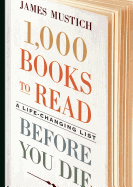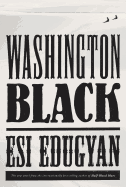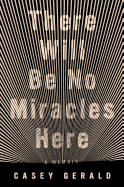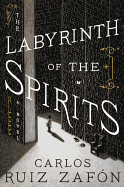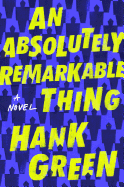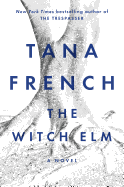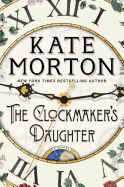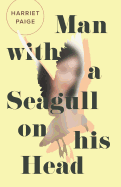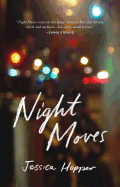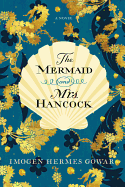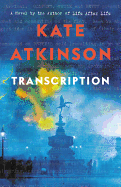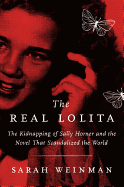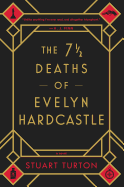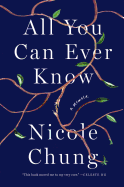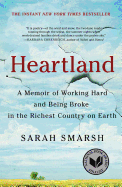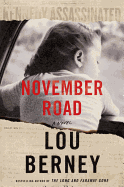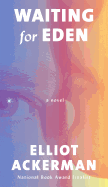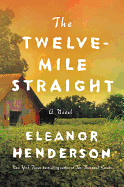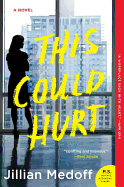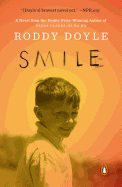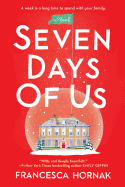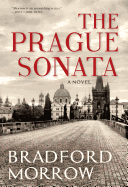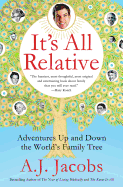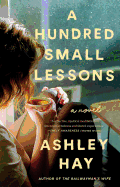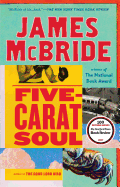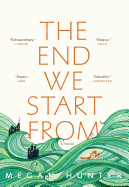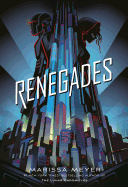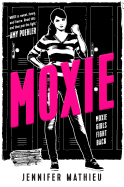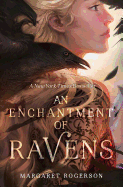 Booksellers have chosen Virgil Wander, the first book in a decade by the novelist Leif Enger (Grove Press, October 2), as their number-one selection on the October Indie Next List.
Booksellers have chosen Virgil Wander, the first book in a decade by the novelist Leif Enger (Grove Press, October 2), as their number-one selection on the October Indie Next List.
When Virgil Wander's car flies off the road into Lake Superior, the Midwestern movie house owner emerges from the lake alive, but with his language and memory skills not completely intact. As he recovers, he begins to piece together his own history and the complicated backstory of Greenstone, Minnesota, the defunct industrial town he calls home, in the company of a lively and eclectic cast of local characters.
Enger was raised in Osakis, Minnesota, and worked as a reporter and producer for Minnesota Public Radio for nearly 20 years. He lives on a farm in Minnesota with his wife, Robin, and two sons. He is the author of the bestselling novels Peace Like a River (Atlantic Monthly Press, 2001) and So Brave, Young, and Handsome (Atlantic Monthly Press, 2008).
How did you get the idea for the story?
For me, a story always starts with characters. In 1992, my wife, Robin, and I were vacationing in Florida and one night we went to a local movie theater in this small town where this young guy was the owner. It was this down-at-the-heels art deco movie theater with the marquee hanging out over the sidewalk. Inside, everything was in a state of upheaval, with pieces of plywood denoting the parts of the floor you couldn't walk on--everything but police tape was in there. Then, when you bought your popcorn from this young guy at the counter, you realized, oh, it's his theater and he's doing this renovation all by himself.
There were about a dozen of us in there to watch White Men Can't Jump. And he just waxed eloquent about his theater and what he planned to do--he was trying to make a place for the people of Leesburg, Florida, to go if they wanted to see a movie but also if they just wanted to get away from the public eye for a couple hours in a place that was sort of dark and quiet. He had this sense of passionate mission about it and really from that moment I thought, geez, I've got to either buy a movie theatre myself because this is so cool or put him in a story, a man like this.
What I didn't have was a setting, and I found it when I discovered the North Shore of Lake Superior, which also happened in my 20s, when I was working for Minnesota Public Radio and got sent there to do a story. To drive up that road for the first time and to see these little towns of such geographical beauty, it actually made your eyes ache. It's this astonishing beauty in which it's almost impossible to make a living. And then I thought, I've got a story here, because I've got a person--Virgil--and I've got a place--Lake Superior--and I've got a thing--a movie theater--so I had the idea for a book.
Can you talk a bit more about your experience exploring the state and its people while working for Minnesota Public Radio? Were any of your characters, if not directly based on people you met in your travels around northern Minnesota, based on certain aspects of people you met?
I had a dream job with NPR. They basically gave me free rein to run around and find the most interesting people and interview them and put them on the air, and if that doesn't turn your crank as a storyteller, I don't know what will. And specifically, they wanted me to do it in rural Minnesota, so that was farm country and lake country--sort of vacation land, places like Greenstone that are always trying to draw tourists, which means they have an income for two or three months out of the year and the rest of the time they're just trying to figure out how to make a go of it. So in this job I was basically just given a mandate to go out and talk to fascinating people. I miss that aspect of journalism for sure. But it's served me pretty well over the years.
I didn't create any of my characters from whole cloth but you always take interesting aspects of people you know and sometimes people that you love. For example, Virgil has a concussion that wipes out his adjectives and I just utterly stole that from my sister, who had a similar thing happen. She was in her car at a stoplight one day when a guy rear-ended her and she had a pretty bad head injury from that. I remember driving over to see how she was doing and she was frantically copying words out a dictionary into a notebook. I said, What are you doing? and she said, I'm getting my adjectives back. And I thought, oh my gosh, if I don't use this there's something the matter with me.
When I was reporting, I was interviewing this guy up on a lake at the border between Minnesota and Canada. He was a fanatical sturgeon fisherman, and I went out with him for a couple of days on his boat trying to find a sturgeon. He wasn't a talkative guy until you brought up sturgeon, and then he would tell you every story he'd ever heard--he had this glint in his eye. He would fish for months to catch one sturgeon. He told me once he met this old man who hooked this sturgeon that ended up pulling him upriver 15 miles. I don't know how true any of that stuff is but it doesn't matter, does it? It's brilliant lore and I tried to bring some of that into the book.
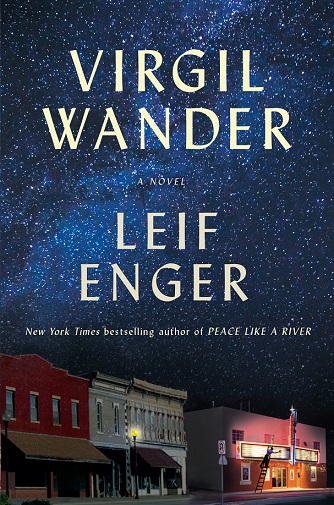 Your description of Greenstone reminds me of the small, working-class, white towns in news stories about the typical Trump supporter. What have you learned in reporting on struggling towns like Greenstone that others might not know?
Your description of Greenstone reminds me of the small, working-class, white towns in news stories about the typical Trump supporter. What have you learned in reporting on struggling towns like Greenstone that others might not know?
It wasn't just in my reporting, probably, but growing up in a town--Osakis, Minnesota--that had about 1,200 people at the time and has a few more than that now, in west central Minnesota. It's not what you think of as union country or Trump country, exactly, it's more farm country, but they have their struggles, too. What you see is that people are kind of determined out here; they might have a lot hard luck, but they're kind of unafraid. That was my experience growing up there.
They're also kind of larger than their politics. There's a lot of day-to-day faith that has to be exercised if you live in a town like that. Their struggles are well-documented. I wanted to write about a town that was struggling because there are so many of them out here. I didn't base it off any one town on the North Shore, but if you look at a map and just put your finger down you'll find a place kind of like it.... So that's always been interesting to me--that tension between a place's natural beauty and your inability to live there.
This is your first book in a decade. What was it like writing this new book over these last 10 years?
A book just takes what it takes. There were times over the course of that 10 years when I just thought, am I ever going to finish this thing? After a certain number of years go by you start to feel some performance anxiety, but then the other thing that happens is that if enough time goes by it takes the pressure off. Ten years is long enough to get really good and forgotten, and nothing frees you up like anonymity.
I would say the first five were a little rugged and, in fact, I did write a whole script, but after five years I read it and I didn't like it. It was this story but it was from a different point of view. I didn't have the voice of Virgil. But I wrote it again; I actually didn't throw the original away until I had written two or three chapters in the voice of Virgil, and once I had written those chapters, I realized I could talk in this voice, that this was a voice I had access to. I think when you're a writer you can have your story perfectly outlined, you can have the whole thing in your head, but if you can't access the right voice in which to tell it, you're kind of out of luck. And that was my problem, but once I had the voice then I had it.
Who are some of your literary influences?
My brother Lin, who is also a novelist. I never thought about writing fiction until my brother started writing in his early 20s. It seemed like this magical power to me. And he's still writing really knockout fiction today.
In terms of other novelists, I really love to read early Larry McMurtry's Texas novels; I love the easy access to voice and vernacular that he has. Another guy that pulls that voice off better than anybody is Nick Hornby, the British writer and author of About a Boy.
I also love Anne Tyler's books. When Robin and I took that trip to Florida and met that guy with the movie theater, I immediately thought of Anne Tyler's Dinner at the Homesick Restaurant. In the book, one of the characters dreams of opening a restaurant where people just come in and receive what they need--you might not even know what you want but you know that you're hungry. You go in and you sit down and the proprietor comes around and sees that you need the macaroni and cheese, and that is what's going to feed your soul that day. And so you end up eating this plate of food that transforms, if not your whole life, then your attitude for the rest of the day. It's such a lovely romantic idea, and it seemed to me that it's what this guy with this theater was doing, too. --Liz Button
A Q&A With Leif Enger, Author of October's #1 Indie Next List Pick




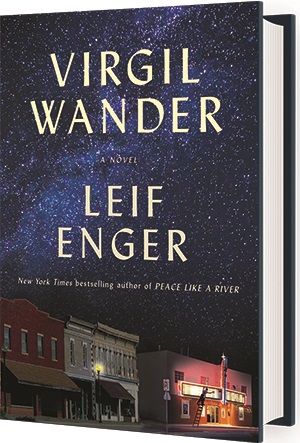
 Booksellers have chosen Virgil Wander, the first book in a decade by the novelist Leif Enger (Grove Press, October 2), as their number-one selection on the October Indie Next List.
Booksellers have chosen Virgil Wander, the first book in a decade by the novelist Leif Enger (Grove Press, October 2), as their number-one selection on the October Indie Next List. Your description of Greenstone reminds me of the small, working-class, white towns in news stories about the typical Trump supporter. What have you learned in reporting on struggling towns like Greenstone that others might not know?
Your description of Greenstone reminds me of the small, working-class, white towns in news stories about the typical Trump supporter. What have you learned in reporting on struggling towns like Greenstone that others might not know?